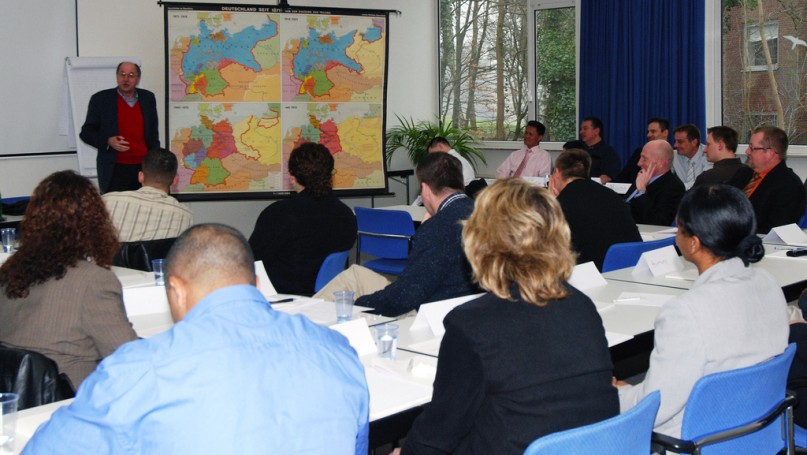
In a recent piece at Crooked Timber blogger Harry explored whether professors teaching controversial material should disclose their own opinions on the topic at hand in the classroom. He writes:
For some of the issues I teach, it is not that hard to find out my views, if you really want to, and are a minimally competent googler. But I take a pretty hard line on the disclosure question. I don’t disclose my views about the issues I teach.
Harry’s position got me to thinking. I regularly teach courses in two disciplines at CEFAM and at ECE: international relations and sociology. When it comes to the former I diverge entirely from Harry. My students know where I stand on international political issues whether they are interventions by states in the affairs of others, responsibility for the health and economic situation in the Global South, my personal stand on different theoretical approaches to international politics, or my perspective on the future (or lack of future) for the European Union. Nothing is held secret and I use the positions I take to promote debate, argue with students, and push them towards critique. I never ask students to agree with me and don’t grade students up or down for taking a position that is the same or counter to my own, respectively. Just as many students have earned strong grades for papers that argue for the stability of a multipolar system, for example, as have earned weak grades for papers arguing that only bipolarity can deliver real stability, the latter being my personal opinion.
Yet when it comes to sociology, though, I take great pains to avoid expressing a view to the students on any of the controversial issues I teach. In the very first class I explain my reasons for this: as a professor there is a significant power differential compared to students and, particularly in a course where I seek to encourage discussion and debate, a professor saying that this point or that point is his view will probably shut down that discussion and close out that debate. It is sometimes hard enough to get students to talk in class without the added social complication of disagreeing with the professor in front of a dozen other students.
Harry makes similar points with regards to his non-disclosure of positions on controversial issues, coming down to three main reasons why this is a wise idea:
- The issues I teach are issues on which there are powerful arguments on more than one side.
- I want the students to take seriously the injunction that I have no interest in them coming to share whatever view I have about the issue at hand.
- I want there to be a good deal of discussion.
My reasons, then, are approximately the same, though I do diverge from Harry a little as I will certainly divulge my opinion on any of the controversial issues I discuss in the sociology class if asked to do so by a student. In these circumstances – and they are rare – I wait until the discussion and debate has finished, I explain my perspective (it often falls in line with one of those already presented in the class by a student) and then move on. Like Harry, I have no interest in the students sharing my view, only that they take a view that they can support with a good argument, good evidence, and which is ethically sound.
So why the difference, then, between the sociology class and the politics class? Why do I feel so free to present my opinions in international politics and so reticent to do so in sociology? I think the difference comes down to the subject matter itself. Unlike the sociology class that dives into issues that are intensely personal such as race, gender, sexuality, abortion, deviance, and addiction, the controversial issues in international politics are of a grander, less personal scale. Was Russia right to occupy Crimea? Is China a threat or an opportunity for the West? Is the EU just a convoluted institutional means of keeping an aggressive German state down? Students seem to accept – and I agree – that the opinion of the professor is not going to force them to feel bad about their own opinion, nor will it shutter them into silence.
One of the things I adore about international politics is the diversity of opinion on almost every issue. In an IR classroom I don’t think it is wrong for a politics professor to share their own views but, just as in my sociology class, there are times when it makes more sense for the professor to pull back and refrain from sharing. The debates and discussions that then emerge will reward that professor with their richness, their candidness, and their value.
Further Reading on E-International Relations
- The Comfort Women Controversy in the American Public Square
- Getting the Most Out of Class Discussion
- What to Do When You Don’t Like a Topic You Teach?
- Turning Point & Padlet: Using Technology in Small Group Teaching
- Inclusiveness, Pedagogy, Identity, Ideology, and the Epistemology of the Professor
- Opinion – Chat GPT and IR: Preliminary Reflections from within ‘Dark Academia’